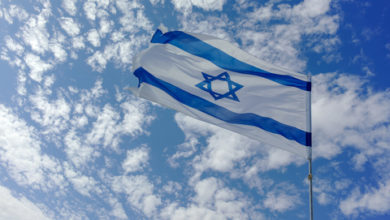Let the Temple be Rebuilt | Basic Tenets of Jewish Philosophy
There has been much discussion about the way the Temple will be rebuilt – let it come quickly, in our time. At first glance the approaches appear to be diametrically opposed to each other, with no possible way to reconcile them. However, let us see if this is really true. We start by listing various approaches to this question.
(1) The Rambam writes that the building of the Temple is one of the 248 positive mitzvot which human beings are obligated to perform: “There is a positive mitzva to build a house for G-d, a place where it will be possible to bring sacrifices, and where the people will come to celebrate three times a year. As is written, ‘Let them make a Temple for Me’ [Exodus 25:8].” While it is true that the Rambam wrote that the Messiah will build the Temple (Hilchot Melachim 11:1), he did not write that one of the conditions for building the Temple is the arrival of the Messiah. However, it does seem clear that a royal decision is a necessary prerequisite for the construction (Hilchot Melachim 1:1).
(2) An opposite view is credited to Rashi and the rabbis of the Tosafot, quoting Midrash Tanchuma, which states that the Temple will arrive from heaven, since it has already been “built and improved” above.
(3) One interpretation is that “from heaven” means that after the Temple is built by human beings the Shechina – the Divine Presence – from the heavens will fill it. This is similar to what happened in the Tabernacle and during the dedication of the First Temple.
(4) Finally, a fourth opinion is that after the Temple descends from heaven its construction will be completed by human activity, in line with the phrase, “Let us be happy with its installation.”
It indeed seems that these different approaches definitely contradict each other. However, they can be reconciled in the end through the approach of the Ramchal in his book, “Mishkanei Elyon.” He writes that the Temple will descend from heaven, and it will then be built by mankind. He explains this concept by a novel explanation of the concept of “heaven.” It is clear to everybody that this is not a reference to outer space or the reaches of the upper atmosphere, but rather to a spiritual world, similar in some way to the world of ideals described by Plato.
According to this approach, the descent from heaven is understood as a spiritual phenomenon consisting of a framework of ideals viewed through “Ruach Hakodesh” – the Holy Spirit – which can be transformed into practical building plans by mankind. Thus, both those who say that the Temple will descend from heaven and those who say it will be built by man are equally right. This explanation seems to correspond in some ways to the opinions which insist that prophecy must be renewed as a condition for rebuilding the Temple.
One might ask that the writings of the Rambam do not indicate that the fulfillment of the mitzva of building the Temple will be delayed until the return of prophecy. We will reply that indeed this is the halacha, but in practical terms it is not reasonable to expect that there will be a broad national consensus without a prior transformation of social values. This will show the government and the institutions of the country the need for renewal of the sacrifices and how to cope with the expected reaction of the other nations to such a move. The necessary transformation could come about as a result of the return of the culture of prophecy within our nation. Thus, Divine guidance might lead to cultural and spiritual development in parallel with the increased intensity of the process of redemption, within the nation of Yisrael and through them in the whole world.
Source: “THE ROOTS OF FAITH: Basic Tenets of Jewish Philosophy” – a biweekly column in Shabbat B’Shabbato (Zomet Institute). See: http://www.zomet.org.il/eng – Vayishlach 5777, issue 1652.



